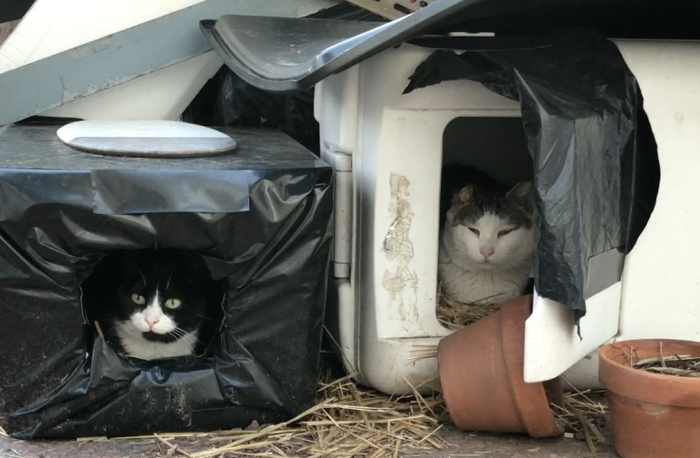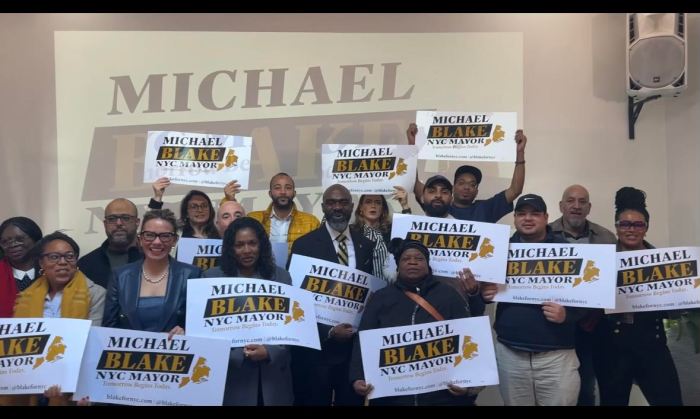Journalist and gay man Anderson Cooper.
He has finally finished evolving. No, not President Barack Obama. That is so early May.
No, no. I’m referring to Anderson Cooper’s Dear Fellow Celebrity Journalist letter to Andrew Sullivan, in which he wrote, “The fact is, I'm gay, always have been, always will be, and I couldn’t be any more happy, comfortable with myself, and proud.”
The fact is, that’s no small thing.
Cooper may be the best known news anchor in the country. He almost certainly is the one most appealing to young people –– well, at least after we disqualify Jon Stewart and Steven Colbert, admittedly on technical grounds. He looks great in a field reporting T-shirt, does a pretty lively gig with Kathy Griffin every New Year’s Eve, and has treated us to some pretty awesome YouTube giggling fits.
He has also lived in what has been called a “glass closet.” There’s no hint that he has lied to people about his sexual orientation; his current relationship has been fodder for lots and lots of online mentions and photos; and he has not shrunk from bringing important LGBT stories to CNN’s large prime time audience.
But he has also been resolute in declining to discuss being gay. Unfortunately, when a successful, high-profile person’s sexuality is such an open secret, the danger is that it sends a message to young people that even in a place of significant privilege, it’s just too risky to talk about being gay.
And to many more Americans outside the LGBT community, it signals that gay people still carry a burden of shame.
In his note to Sullivan, Cooper explains his reticence about coming out publicly as a matter of journalistic principle.
“I've always believed that who a reporter votes for, what religion they are, who they love, should not be something they have to discuss publicly,” he wrote. “As long as a journalist shows fairness and honesty in his or her work, their private life shouldn't matter.”
Later in the letter, he elaborated on the theme of his professional ethics, writing, “It is not part of my job to push an agenda, but rather to be relentlessly honest in everything I see, say and do. I’ve never wanted to be any kind of reporter other than a good one, and I do not desire to promote any cause other than the truth.”
These are all noble ideas, but I can’t help feeling they are also disingenuous pretext. Cooper is a journalist, but he is also a celebrity and has been marketed as such by CNN over the arc of his rise. A number of years back, he wrote a memoir about his time reporting in war zones and from the sites of natural disasters. To Sullivan, he said, “I did not address my sexual orientation in the memoir I wrote several years ago because it was a book focused on war, disasters, loss and survival. I didn't set out to write about other aspects of my life.”
Some of those losses, however, were very personal –– the early death of his father and the suicide of his only brother. He also wrote about his socialite mother, Gloria Vanderbilt, about whom he later contributed to a vanity picture book. The memoir was heavily promoted in a campaign that featured journalist Anderson Cooper.
However, it is asking too much of the public to insist they should have an interest in Cooper’s personal life, but then shoo away questions about his sexual orientation. Big name journalists have made much in recent years of their personal family stories; when the late Tim Russert rather relentlessly promoted his memoir of growing up with an Irish Catholic working class father, nobody that I can recall questioned his bona fides in asking some of the toughest political questions each week on “Meet the Press.”
To be fair to Cooper, some critics of his memoir commented that he seemed uncharacteristically stilted in those sections in which he talked about his family. Being circumspect about what goes on in private –– whether in the kitchen or the bedroom –– doesn’t mean Cooper is a man filled with shame.
Still, Cooper implicitly acknowledged in his letter to Sullivan that he his obliqueness about his sexual orientation had gone on for too long.
“It’s become clear to me that by remaining silent on certain aspects of my personal life for so long, I have given some the mistaken impression that I am trying to hide something ––something that makes me uncomfortable, ashamed or even afraid,” he wrote. “This is distressing because it is simply not true… There continue to be far too many incidences of bullying of young people, as well as discrimination and violence against people of all ages, based on their sexual orientation, and I believe there is value in making clear where I stand.”
Here, Cooper’s credibility is on much firmer footing. If past is prologue, we might expect to see him fêted at LGBT non-profit fundraisers over the next year. Helping our community raise money is great, but I’d rather see Cooper roll up his sleeves and head out to some high schools to talk about his life as a successful gay man.
In a celebrity-obsessed culture, Cooper’s recent action, done in writing to a trusted friend as he prepared to leave town for a holiday, provides something of a quintessential snark moment. “Duh!” “Finally!” And, “Didn’t he do that already?” have been typical reactions among folks who have long been in the know.
Weeks before Cooper came clean, Michelangelo Signorile, as assiduous a student of famous people acknowledging their homosexuality as there is, tweaked the way famous folks are increasingly evading the uncomfortable acknowledgement they have lingered too long in the closet, in a Huffington Post column titled “The New Gay Celebrity Coming Out: ‘I’ve Never Been In.’” In his post-Cooper follow up, he noted that with seemingly copycat pieces in the New York Times and Entertainment Weekly, his thesis has become rock solid conventional wisdom. (The world spins faster and faster and faster.) In fact, it was a question Sullivan posed to Cooper about the Entertainment Weekly piece that prompted the coming out letter.
For all of Signorile’s disdain for the closet, however, he concluded the trend is not a bad one.
“The closet isn't going away any time soon,” he wrote at the end of his first installment. “But one step toward dismantling it among public figures it to make it a difficult and embarrassing place to be. From the looks of the latest celebrity self-outings, that's perhaps starting to take hold.”
So now it’s time for me to come clean. Anderson Cooper never kissed me –– at least that I can recall (leaving that door open ever, ever so slightly). But I will bestow my kiss on him tonight. What he did will likely help a young person. Probably a good many young people.
The fact is, that’s a good and important thing.





